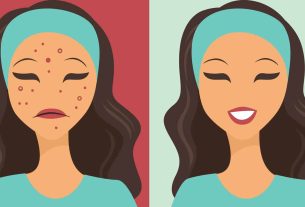Anxiety medications, such as benzodiazepines or antidepressants, may be recommended by a psychiatrist to help alleviate symptoms of changes in sleep, difficulty sleeping, relaxing or concentrating, easily tired or constant worry, as they act directly on the brain, regulating substances chemicals, responsible for causing anxiety, generalized anxiety disorder or panic attacks, for example.
However, these medications are generally prescribed by the doctor when other treatment options, such as psychotherapy, have not been effective in helping to control anxiety or when it occurs excessively, it ends up creating a state of constant alert and fear that affects tranquility and causes unpleasant bodily sensations, such as rapid heartbeat, shortness of breath, excessive sweating, body aches and abdominal discomfort. Know how to identify anxiety and its consequences for the body.
Furthermore, there are options of natural remedies for anxiety that can be used in milder cases, such as herbal medicines based on passionflower, valerian, chamomile or St. John’s wort, as long as it is guided by a doctor or herbalist, in addition to a diet rich in omega-3. or magnesium, and the practice of physical activities, for example.

Pharmacy remedies
In the presence of signs and symptoms that indicate anxiety, it is important to seek assistance from a psychologist or psychiatrist, so that their causes can be identified and the best forms of treatment can be indicated, which normally starts with psychotherapy and only then includes the use of medication. However, in more serious cases, the psychiatrist may recommend the use of medication before psychotherapy.
There are a variety of medications that can be used to treat anxiety, sold with a prescription, which will depend on the type of anxiety disorder the person has or the presence or absence of other mental or physical disorders.
Some examples of pharmacy remedies for anxiety are:
1. Antidepressants
Antidepressants are the most recommended medications for the long-term treatment of anxiety, as they act by regulating the levels of neurotransmitters in the brain, such as serotonin, norepinephrine and dopamine, relieving anxiety symptoms.
These remedies generally take around 15 days to reach their maximum effect in treating anxiety, and therefore, it is important to take into account that the onset of anxiolytic action is gradual.
Some examples of antidepressants that may be recommended by a psychiatrist for the treatment of anxiety are imipramine, sertraline, paroxetine or venlafaxine, for example.
2. Benzodiazepines
Benzodiazepines are anxiolytic medications indicated for the treatment of anxiety for a short period of time, as they act by decreasing brain functions, causing a tranquilizing effect and even drowsiness, helping the person to relax and reduce tension.
Normally, anxiolytics are indicated at the beginning of anxiety treatment, together with antidepressants, but they are not recommended for prolonged use, due to their ability to cause dependence and because they reduce alertness and affect coordination.
Examples of benzodiazepines used to treat anxiety are lorazepam, alprazolam, bromazepam, diazepam or clonazepam, for example.
3. Non-benzodiazepines
Non-benzodiazepine medications, such as buspirone, are anxiolytic medications from the azapirone class, which do not carry risks of abuse, dependence or withdrawal, nor do they interact with other hypnotic medications or alcohol. Furthermore, this substance also does not cause sedation or psychomotor changes.
Generally, this remedy is indicated for people who have a history of abusing medications or other toxic substances.
4. Beta-blockers
Although they are less effective compared to the medications described previously, beta-blockers can be useful in people with intense somatic symptoms. These medications have peripheral action, reducing the influence of the perception of peripheral somatic symptoms, such as tremors and rapid heartbeats, on the cognitive symptoms of anxiety.
An advantage of β-blockers over benzodiazepines is the lower incidence of cognitive impairment. Examples of beta-blockers used in anxiety are propranolol, oxprenolol and nadolol.
5. Antihistamines
Although they are mainly used to treat allergies, some antihistamines have been shown to be effective in treating cases of anxiety. Among them, the most used is hydroxyzine, an H1 antagonist. However, more studies are needed on the effect of these medications on anxiety and, for this reason, antihistamines are normally not indicated at the beginning of treatment.
Natural remedy options for anxiety
Some natural ways to control anxiety, in milder cases, include:
- Use home remedies, such as passion fruit juice, passionflower tea, lemon balm tea or St. John’s wort tea, for example, as they are rich in calming and anxiolytic active ingredients. Check out the main teas for anxiety.
- Practice low-intensity physical exercise, such as walking, pilates or yoga. See other ways to calm your mind with exercise;
- Invest in relaxation methods, such as meditation or breathing techniques, for example, which help a lot in controlling symptoms. Discover other tips to help control anxiety.
Furthermore, it is also recommended to increase the consumption of foods rich in magnesium, omega-3 and tryptophan, such as bananas, sardines and chocolate, for example. This is because these nutrients increase the production of serotonin, helping to control anxiety.
Watch the following video and see some foods that help control anxiety:

Sign up for our newsletter and stay up to date with exclusive news
that can transform your routine!
Warning: Undefined array key "title" in /home/storelat/public_html/wp-content/plugins/link-whisper-premium/templates/frontend/related-posts.php on line 12
Warning: Undefined array key "title_tag" in /home/storelat/public_html/wp-content/plugins/link-whisper-premium/templates/frontend/related-posts.php on line 13



